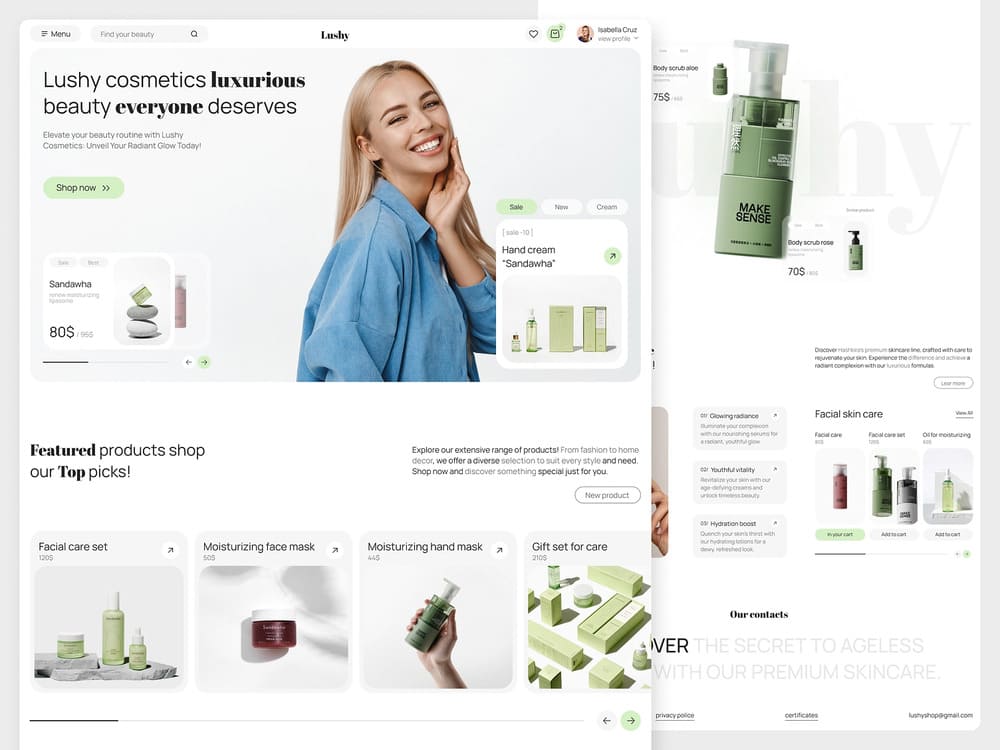The skincare industry is a highly competitive space, with new brands emerging every day and countless options for consumers. If you want your skincare business to thrive, standing out and effectively engaging your target audience is crucial. The key to achieving this lies in digital marketing. By leveraging the right strategies, you can enhance your brand’s visibility, connect with potential customers, and boost sales significantly. Let’s dive into five actionable digital marketing hacks tailored specifically for skincare brands.
Why SEO is Non-Negotiable for Skincare Brands

Search engine optimization (SEO) is one of the most powerful tools for growing a skincare business. It ensures your website appears in search results when potential customers are looking for skincare solutions. When done right, SEO drives organic traffic to your website, increases visibility, and establishes your brand as an authority in the industry.
To implement SEO effectively, start by identifying keywords your target audience is searching for, such as “best moisturizer for dry skin” or “anti-aging skincare tips.” Integrate these keywords naturally into your website’s content, including product descriptions, blog posts, and meta tags. Additionally, focus on creating high-value content, such as blogs or videos that provide skincare advice, product comparisons, or ingredient insights. This content not only attracts readers but also builds trust in your expertise.
Mobile optimization is another critical aspect of SEO. With most users accessing websites via their smartphones, ensuring your website is responsive and loads quickly is vital. Moreover, skincare brands can benefit from local SEO by optimizing their Google My Business profile and targeting location-based keywords. For instance, phrases like “natural skincare in Bali” can attract local customers who are actively searching for solutions nearby.
Social Media Advertising: Where Skincare Brands Shine

Social media platforms like Instagram, Facebook, and TikTok are ideal for skincare brands, as they allow you to showcase your products visually and connect directly with your audience. Social media advertising amplifies these efforts, enabling you to target specific demographics with precision.
Start by running targeted ads that reach users based on age, location, skincare concerns, and purchase behavior. Visual content is particularly important in skincare advertising. Short videos showcasing how to use your products, before-and-after transformations, or user testimonials perform exceptionally well. These videos resonate with potential customers and encourage them to explore your brand further.
In addition to ads, consider incorporating user-generated content (UGC) into your strategy. Sharing photos and videos from real customers who love your products builds authenticity and trust. Many skincare brands have successfully leveraged TikTok challenges to go viral, creating buzz around their products. For example, launching a hashtag challenge like #GlowWithUs can encourage users to share their skincare routines featuring your products.
Building Long-Term Relationships Through Email Marketing

Email marketing remains one of the most effective ways to nurture relationships with your audience and drive repeat purchases. For skincare brands, this channel offers endless opportunities to engage customers in a personalized and impactful way.
Begin with a welcome email for new subscribers, offering an exclusive discount on their first purchase. This small gesture not only incentivizes a purchase but also leaves a positive impression. To retain these customers, send regular updates featuring personalized product recommendations based on their past purchases or browsing behavior.
Seasonal campaigns can also be highly effective. For instance, an email titled “Winter Skincare Must-Haves” can showcase products that address seasonal skin concerns, such as dryness or irritation. Including educational content, like skincare tips or ingredient benefits, adds value and keeps your audience engaged. Remember, loyal customers are more likely to recommend your brand to others, so keep your email list active and engaged.
The Power of Influencer Partnerships

Influencer marketing has become a cornerstone of digital strategies for skincare brands. Collaborating with influencers who align with your brand values allows you to reach a highly engaged audience and build credibility. The trust influencers have established with their followers can translate into increased interest and sales for your products.
When choosing influencers, focus on those whose audience matches your target demographic. For instance, partnering with a beauty blogger known for reviewing clean beauty products is ideal if your brand emphasizes natural ingredients. Authenticity is crucial in these collaborations. Instead of scripted promotions, encourage influencers to share honest reviews or integrate your products into their daily routines.
Brands like Tatcha have effectively used influencer partnerships to amplify their reach. By collaborating with beauty experts on platforms like YouTube and Instagram, they’ve built a strong reputation and increased product visibility. Track the success of your influencer campaigns by monitoring metrics like engagement, website traffic, and sales conversions.
Retargeting Ads: Winning Back Potential Customers

Not every visitor to your website will make a purchase on their first visit, but that doesn’t mean the opportunity is lost. Retargeting ads allow you to re-engage these potential customers, reminding them of what they left behind and encouraging them to complete their purchase.
Dynamic product ads are particularly effective, as they showcase the specific items users viewed on your website. For instance, if a customer browsed your “hydrating face serum” but didn’t check out, a retargeting ad featuring that product, along with an enticing offer like free shipping, can prompt them to return and buy.
Cart abandonment campaigns are another valuable strategy. Sending follow-up emails or ads to customers who added items to their cart but didn’t complete the checkout process can recover lost sales. Adding urgency, such as limited-time discounts, further motivates them to act quickly.
Conclusion
Growing your skincare business in today’s competitive market requires a strategic approach to digital marketing. By optimizing your website with SEO, leveraging social media advertising, nurturing customer relationships through email campaigns, partnering with influencers, and utilizing retargeting ads, you can significantly boost sales and establish a strong brand presence.
At Noethera, we specialize in helping skincare brands implement these strategies effectively. From designing SEO-optimized websites to crafting impactful marketing campaigns, we’re here to support your growth. Contact us today and let’s create a digital marketing strategy that makes your brand shine.







